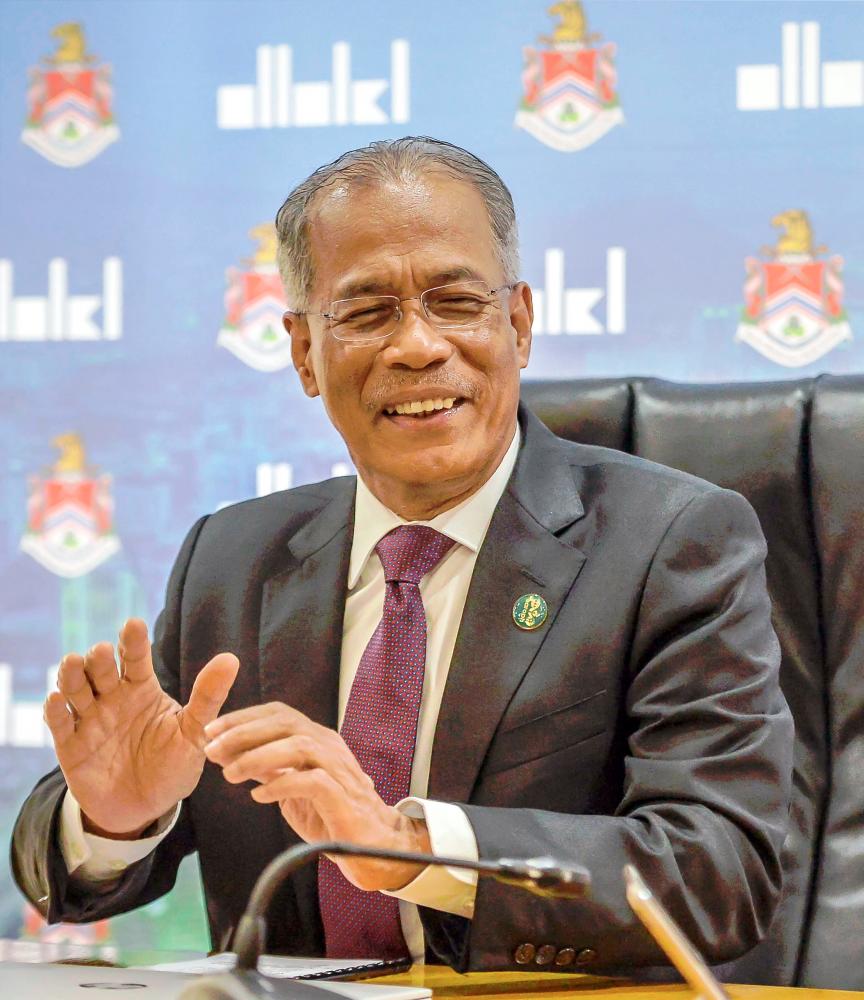KUALA LUMPUR: When Datuk Seri Mahadi Che Ngah was offered a Datuk Bandar Kuala Lumpur scholarship in the late 1970s to pursue a Town Planning degree, he never imagined he would one day helm Kuala Lumpur City Hall.
As mayor of Malaysia’s capital city for the past two years, Mahadi outlined to theSun several key plans he initiated to turn Kuala Lumpur into a greener and more liveable place as its population fast approaches 2.5 million.
“Kuala Lumpur is the capital city, so all focus is here. The residents also demand high-quality facilities as they have been exposed to city facilities in other countries, so that pushes us always to give our best.”
During his stint as the mayor, Mahadi shifted the focus and efforts of Kuala Lumpur City Hall towards making the city greener, more accessible and sustainable, in accordance with the Sustainable Development Goals set by the United Nations.
Mahadi said Kuala Lumpur City Hall, along with the city council of Tokyo, bagged an accolade at the 2022 C40 Cities Bloomberg Philanthropies Awards at the C40 World Mayors Summit in Buenos Aires, Argentina, last month, under the category of “United to build a climate movement”.
He said when he first became mayor, one of the affirmative actions he implemented was to prioritise the management of homeless people in the city. KL City Hall has built a one-stop centre in Medan Tunku that can accommodate approximately 200 people.
“We also worked with different agencies and organisations , such as the Social Welfare Department and the Federal Territories Islamic Religious Council, to ensure the welfare of homeless people in the capital.
“Apart from that, we also collaborated with the Social Security Organisation to conduct job matching to help the homeless secure work,” he said.
Mahadi said KL City Hall’s achievements under his administration included the installation of solar panels and energy-efficient equipment in buildings that it owned, such as offices, the market in Dato’ Keramat and bus stops in the city centre.
He said KL City Hall is working on a floating solar farm project in Danau Kota to ensure enough renewable energy supply and eliminate the use of big space in the city.
“Everyone plays a role in reversing the effect of climate change on our planet, and as a city council, we are doing as much as we can to create a better city for future generations.
“Therefore, each employee at city hall receives a transport incentive such as a My50 unlimited travel pass to encourage usage of public transport among staff.”
On carbon reduction efforts, besides implementing car-free days on weekends, Mahadi said the KL City Hall has rented 60 electric buses which are free for the public and introduced an application with live updates of the movement and arrival of the buses.
In the last two years, he has also expanded the blue cycling lanes to increase mobility of cyclists in the city, and at the same time, encourage Kuala Lumpur residents to adopt healthier lifestyles.
“I have also facilitated the establishment of a task force called the Kuala Lumpur Traffic Management Special Working Committee, which is dedicated to ensuring traffic congestion in the city is under control.
“If any traffic problems persist and require intervention, we will work with related agencies such as the police and the Malaysian Highway Authority if needed, to assist in the traffic management there.”









